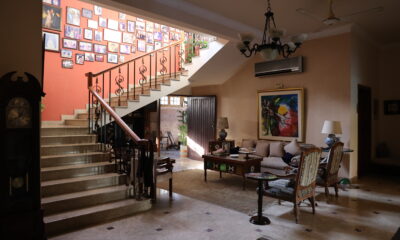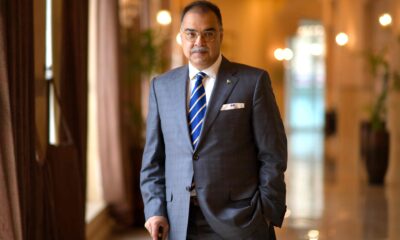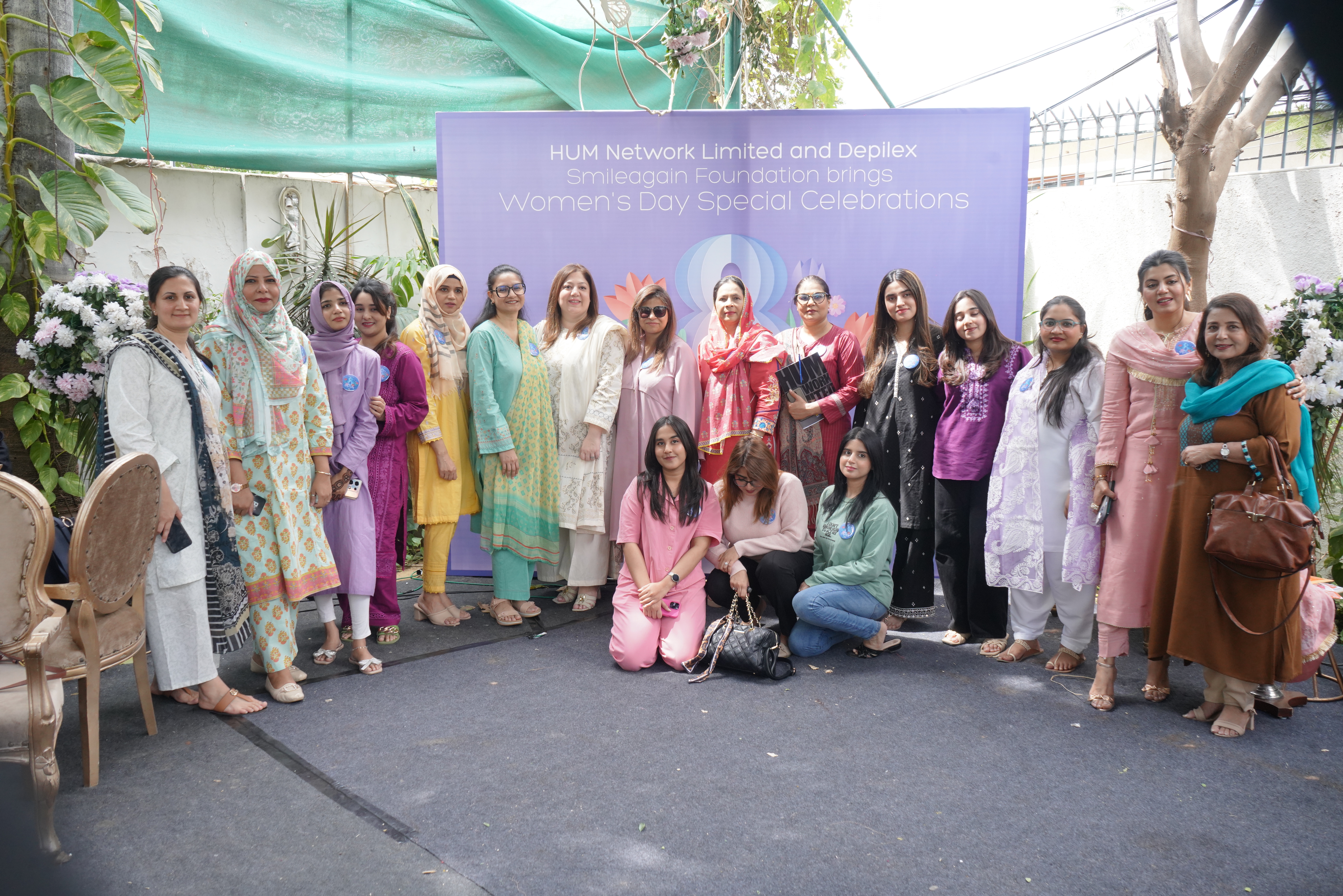Entreprenurs
A Conversation with the Visionaries Behind Diners

As one of Pakistan’s most iconic fashion brands, Diners has seamlessly evolved with the times while staying true to its roots. With decades of craftsmanship and a finger firmly on the pulse of modern trends, the brand, along with its women’s line, Sohaye by Diners, continues to captivate customers across generations. In this exclusive interview, we look into the minds behind the brand to discuss innovation, relevance, and the future of fashion in Pakistan.
Q: How do you ensure the brand stays relevant in Pakistan’s highly competitive fashion retail market?
Relevance is earned through listening, adapting, and anticipating change. At Diners, we conduct regular competitive brand audits to stay ahead of market dynamics. These audits help us assess our standing against key players, track shifting consumer behaviour, and spot emerging trends before they go mainstream. It’s a dynamic landscape, and we treat it as such—constantly refining our strategy so that the brand remains contemporary, compelling, and connected to our audience. In fashion, complacency is the enemy of relevance.
Q: What sets Diners and Sohaye by Diners apart from other clothing brands?
It begins with clarity. Our brand positioning is sharp and consistent, and our value proposition is built around quality, affordability, and timeless style. What truly sets us apart, though, is our customer-first mindset. Whether we’re designing a new collection or rethinking retail, we approach everything with the question: “What would our customer want?” This culture of continuous improvement ensures that every Diners and Sohaye piece is not just stylish, but also meaningful to the person wearing it.
Q: What role does customer feedback play in shaping your collections?
Customer feedback is the soul of our design process. We don’t just design clothes, we design experiences. Through structured feedback mechanisms, in-store insights, and digital engagement, we’re constantly learning what our customers love, what they need, and how they want to feel. This feedback helps us fine-tune fabrics, adjust fits, and refine styles to create clothing that speaks to people, not at them. Every collection we launch is a reflection of real voices and real lives.
Q: How do you balance traditional wear with modern fashion trends?
For us, tradition and modernity aren’t opposites—they’re two sides of the same coin. Our design philosophy blends the richness of traditional Pakistani aesthetics with the refinement of contemporary silhouettes. Think timeless embroidery on minimalist cuts, or classic motifs reimagined in modern palettes. This balance appeals not only to our core market but also to the growing diaspora of Pakistani women who want to celebrate their heritage with a global touch. Sohaye, in particular, embodies this fusion beautifully.
Q: How crucial is e-commerce to Diners’ growth strategy?
E-commerce is no longer an extension of retail—it is retail. It offers accessibility, convenience, and personalization like no physical store can. For us, digital sales ais central to future growth. We’re investing in immersive content, smarter search tools, mobile optimization, and personalized shopping journeys. Our goal is to make the online experience just as warm, trustworthy, and enjoyable as walking into one of our stores. We see e-commerce not just as a sales channel, but as a powerful platform for brand storytelling and customer connection.
Q: How do seasonal sales and discount campaigns support the brand’s image?
Seasonal promotions are strategic moments to create buzz, engage our audience, and reach new customers. We’re very intentional with our campaigns, timing them with key shopping periods and designing them to maintain the brand’s integrity. We never compromise on quality even during sales. The goal isn’t just to boost sales in the short term, but to create memorable experiences that turn first-time buyers into loyal patrons. Done right, discounts can enhance brand value, not diminish it.
Q: Is Diners taking steps toward sustainability in fashion?
Absolutely. Sustainability is no longer optional, it’s essential. We’re taking active steps toward integrating sustainable practices throughout our value chain. This includes responsibly sourcing fabrics, reducing production waste, using eco-friendly packaging, and exploring circular fashion models. While it’s a journey, not a destination, we are fully committed to making choices that are better for both people and the planet. Our customers are increasingly conscious of these issues, and we want to grow with them—ethically and responsibly.
Q: As a leader, what challenges do you face and how do you overcome them?
Leading a brand is as much about mindset as it is about strategy. Challenges range from meeting tight deadlines to navigating market shifts, and maintaining team morale during stressful times. I believe in staying calm under pressure, setting clear priorities, and empowering my team to take ownership. Leadership is about building trust, practicing self-awareness, and thinking long-term, even when you’re surrounded by short-term pressure. It’s not always easy, but the impact makes it incredibly fulfilling.

Q: How do you see the Pakistani fashion industry evolving in the next 10 years?
Traditional garments like the shalwar kameez will remain timeless, but they’ll evolve with lighter fabrics, fluid cuts, and bolder colour expressions. I also believe Pakistani fashion will gain more international visibility as our designers continue to push creative boundaries.
Q: Finally, what message would you like to share with Diners and Sohaye customers?
To our valued customers: thank you for walking this journey with us. Every outfit we create is made with care, purpose, and the belief that you deserve to feel confident and comfortable in your own skin. Whether it’s a crisp kurta for the office or a festive jora for Eid, we’re honoured to be part of your life moments. Keep believing in your style—and wear it with pride.


















